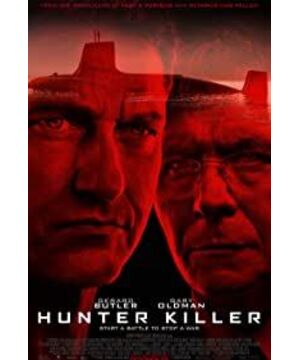To be honest, the movie feels uncomfortable right from the start. Your American submarines are chasing Russian submarines and chasing them on their own territory. Looking back, I am embarrassed to say that the Russians tried to provoke a third world war. This fictitious method is really incomparable.
However, it seems that although it is based on the fact that Americans always treat other countries as belligerents ("Arrival" believes that China was the first to declare war on aliens, this time it let the Russian generals try to start the third world war), then Think of yourself as a world-saving, peace-loving guardian. But the "decision" and "execution of orders" in the film are really interesting.
The protagonist did not come from a military academy, but was entrusted with an important task. The Russian general tried to start a war, seize power through war, and show his understanding of the world; in order to find the missing submarine and find the reason, the American submarine sent the protagonist to the territorial waters of Russia with a nuclear submarine. Because submarines are dispatched to foreign territorial waters, if there is a mishap, they must be held responsible. So it's hard to be a captain.
The protagonist not only avoided the outbreak of the Third World War, but also solved the problem of internal strife in Russia by virtue of what the Russian captain said "no one can make such a decision as you".
After diving into the Russian territorial waters, knowing that the submarine in front has been destroyed, none of them survived; the protagonist still insists on "doing nothing", insisting on evasion, and hard top. It was obvious that the Russian submarine was damaged, and it took the risk of sending people to search. As a result, because of the accurate analysis of the protagonist, the interior of the Russian submarine was still intact, and the Russian captain was rescued. And according to the laws of war, the other party is already a prisoner, and the protagonist cannot talk to him privately, nor allow him to participate in his own battle. However, because the other party is more familiar with Russian waters than his own, "trust" and a common "goal" (peace) made the Russian captain agree to guide the protagonist's submarine into Russia and issue instructions to his subordinates.
Even more because in the end, when the Russian general had pointed all his missiles at the American submarine (with the Russian captain and president on board), he insisted on not firing missiles. As a result, the Russian navy, in turn, fired missiles at the command post of the general who was trying to seize power.
Think about it, as long as the protagonist launches a missile, the missiles and even nuclear weapons on the American side will be put into use in an instant, and this war is provoked by the United States from any point of view (after all, the reality can only be that the US submarine hijacks the president , and want to attack Russia). And because the protagonist believes in the rationality of the Russian soldiers (not war), and of course, because the Russian Navy accepts both the general direction of the president and the specific education and leadership of the small captain, the command of the general is overridden.
So, in the final analysis, the successful decision-making in the movie is actually very consistent with the solution to the military friction between major powers in reality: I believe that each other is unwilling to start a war, even if the leadership is in the hands of a war madman. Everyone must exercise restraint, and embrace the attitude that they would rather sacrifice and be beaten than take the initiative to provoke war. 18.12.23
| real J.Pb
View more about Hunter Killer reviews











